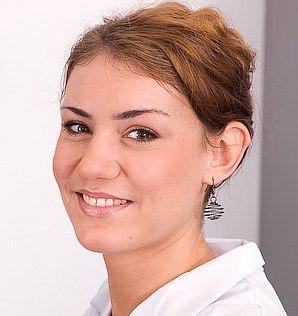Person
Zmorzynska, Justyna
|

|
Biography and Research Interest
I am a geneticist and developmental neurobiologist with a strong interest in computer vision and programming. My early work was focused on unraveling molecular mechanisms of spinocerebellar ataxias (SCAs). Now, my lab studies environmental regulation of neuropsychiatric phenotypes such as autism spectrum disorder, intellectual disability, and anxiety disorder.
Non-Zebrafish Publications
Koscielny A, Malik AR, Liszewska E, Zmorzynska J, Tempes A, Tarkowski B, Jaworski J. Adaptor Complex 2 Controls Dendrite Morphology via mTOR-Dependent Expression of GluA2. Molecular Neurobiology, 2018, Feb; 55(2):1590-1606.
K Switon, K Kotulska, A Janusz-Kaminska, J Zmorzynska, J Jaworski. Molecular neurobiology of mTOR. Neuroscience, 2017, Jan 26; 341:112-153.
K Switon, K Kotulska, A Janusz-Kaminska, J Zmorzynska, J Jaworski. Tuberous Sclerosis Complex: From Molecular Biology to Novel Therapeutic Approaches. IUBMB Life, 2016 Dec; 68(12):955-962.
Smeets CJ, Zmorzyńska J, Melo MN, Stargardt A, Dooley C, Bakalkin G, McLaughlin J, Sinke RJ, Marrink SJ, Reits E, Verbeek DS. Altered secondary structure of Dynorphin A associates with loss of opioid signalling and NMDA-mediated excitotoxicity in SCA23. Human Molecular Genetics, 2016 Jul 1;25(13):2728-2737.
C Smeets*, J Jezierska* (Zmorzynska), H Watanabe, A Duarri, MR Fokkens, M Meijer, Q Zhou, T Yakovleva, E Boddeke, W den Dunnen, J van Deursen, G Bakalkin, HH Kampinga, B van de Sluis, DS Verbeek. Elevated mutant dynorphin A causes Purkinje cell loss and motor dysfunction in spinocerebellar ataxia type 23. Brain. 2015 Sep; 138(Pt 9):2537-52. (*equal contribution)
J Jezierska (Zmorzynska), J Goedhart, HH Kampinga, EA Reits, DS Verbeek. SCA14 mutation V138E leads to partly unfolded PKCγ associated with an exposed C-terminus, altered kinetics, phosphorylation and enhanced insolubilization. Journal of Neurochemistry, 2014 Mar;128(5):741-51.
J Jezierska (Zmorzynska), G Stevanin, H Watanabe, MR Fokkens, F Zagnoli, J Kok, J Goas, P Bertrand, C Robin, A Brice, G Bakalkin, A Durr, DS Verbeek. Identification and characterization of novel PDYN mutations in dominant cerebellar ataxia cases. Journal of Neurology, 2013; Vol. 260, Issue 7:1807-1812.
A Duarri, J Jezierska (Zmorzynska), MR Fokkens, M Meijer, HJ Schelhaas, WFA den Dunnen, F van Dijk, C Verschuuren-Bemelmans, G Hageman, P van de Vlies, B Küsters, BP van de Warrenburg, B Kremer, C Wijmenga, RJ Sinke, MA Swertz, HH Kampinga, E Boddeke, DS Verbeek. Mutations in potassium channel kcnd3 cause spinocerebellar ataxia type 19. Annals of Neurololy, 2012 Dec; 72(6):870-80.
G Bakalkin, H Watanabe*, J Jezierska* (Zmorzynska), C Depoorter, C Verschuuren-Bemelmans, I Bazov, KA Artemenko, T Yakovleva, D Dooijes, BPC Van de Warrenburg, RA Zubarev, B Kremer, PE Knapp, KF Hauser, C Wijmenga, F Nyberg, RJ Sinke, DS Verbeek. Prodynorphin mutations cause the neurodegenerative disorder spinocerebellar ataxia type 23. American Journal of Human Genetics, 87(5), 593-603, Nov 12, 2010. (*equal contribution)
